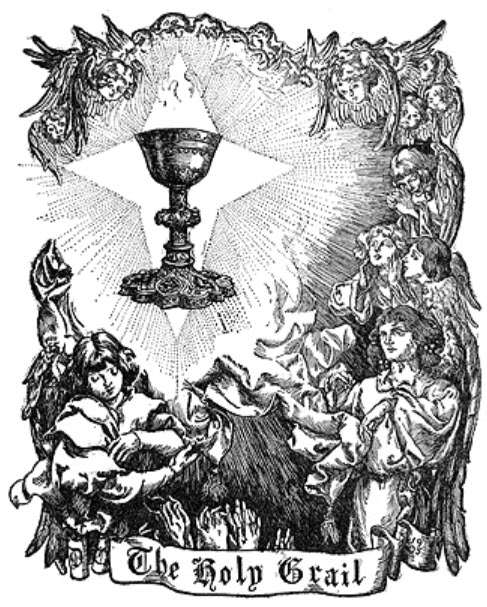Guest Blogger and long-time Council friend, Bob W. presents Part 45 of a series dealing with Alcoholism and Addiction from a Mystical, Mythological Perspective, reflecting Bob’s scholarly work as a Ph.D. in mythological studies.
In the aftermath of the fall of Rome in the 5th century and the loss of its literary and cultural majesty, the European continent became widely diverse and generally devoid of scholarship. The Church was the only institution of wide-spread power. In this environment, which lasted almost 600 years, there were a number of mythic systems which emerge. One was the great Celtic legend of King Arthur and the Knights of the Round Table. A host of stories emerged out of this system, about kings, queens, knights and ladies, who pursue glorious quests in search of physical, psychical and spiritual treasures.

The most prominent of these quests is the search for the “Holy Grail,” which is the cup that Christ drank from at the Last Supper and which Joseph of Arimathea used to capture some of Christ’s blood as he was lowered from the Cross. Joseph was portrayed as part of a group that then fled Palestine, traveling West with the Cup to found an order in the Celtic lands charged with keeping the Cup. The Arthurian Knights that sought the Grail were on quests for spiritual enlightenment and ascension, which they achieve by coming into the presence of the Grail.
Those of us on the journeys into lives of sobriety are on similar quests…quests to achieve a sense of freedom, peace and serenity. Having made the decision to commit ourselves to the journey, we must do the work to recover with a sense of determination and rigor. We must explore the dark and frightening elements of our past in all its dimensions and find a conscious contact with our Higher Power so we can repair the harm we may have done in our disease and develop a saner mode of life.
Finally, we fully commit ourselves to a life of service, to mankind and to the cosmos. In relatively short order, we find ourselves in a place just as glorious as those the Arthurian Knights achieved in the presence of the Grail.
